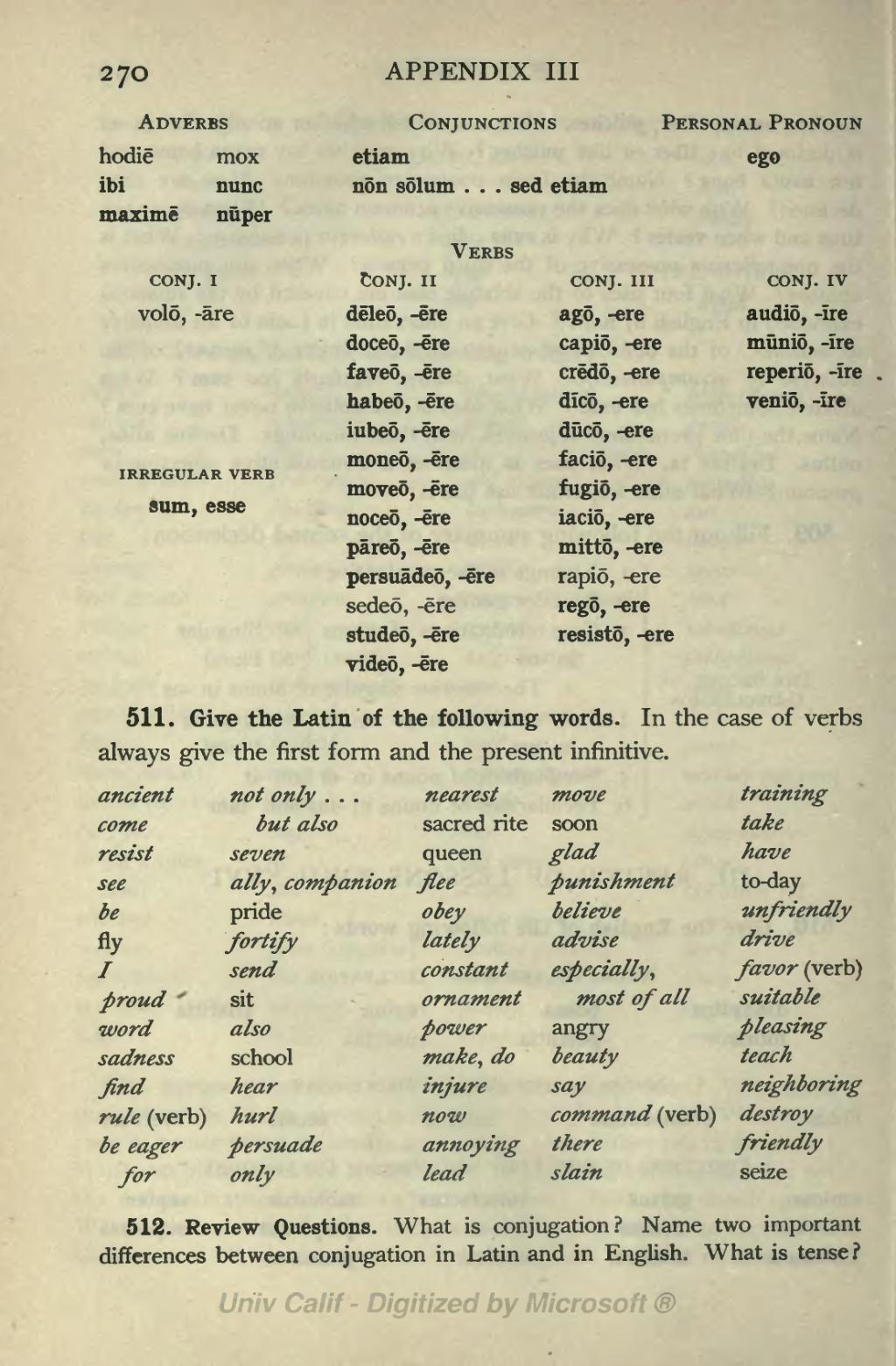270 APPENDIX III
| Adverbs | Conjunctions | Personal Pronoun | |
|---|---|---|---|
hodiē |
mox |
etiam |
ego |
| Verbs | |||
|---|---|---|---|
| CONJ. I | CONJ. II | CONJ. III | CONJ. IV |
volō, -āre
IRREGULAR VERB |
dēleō, -ēre |
agō, -ere |
audiō, -īre |
511. Give the Latin of the following words. In the case of verbs always give the first form and the present infinitive.
ancient |
seven |
nearest |
move
angry |
training |
512. Review Questions. What is conjugation? Name two important differences between conjugation in Latin and in English. What is tense?
